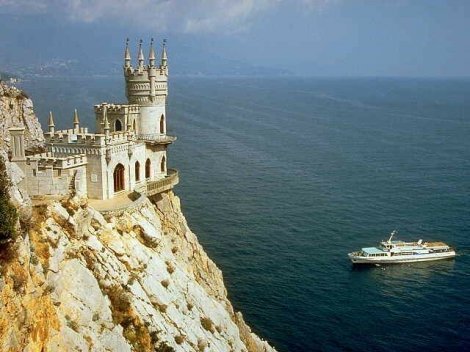
Crimea's economy, on the edge of a cliff
The tension flared right after Russia's annexation of the Crimean Peninsula is, apparently, calming down. However, a new crisis is about to hit Crimea as its economy is currently experiencing a high-speed drop.
In spite of its past and present connections with Russia, Crimea heavily depended on Ukraine as its economic lifeline. Everything from food, to banking services to tourists, who accounted for 70% of the Crimean tourism came from Ukraine.
Now, those connections have either been broken, lost, prohibited or weakened, leaving Crimea in an economic purgatory.
The tourism industry is on the edge, hotel owners reporting a 90% vacancy for May, a period when, normally, they would have had a 90% occupancy. The tourism ministry estimated that almost half of the population depended on revenue from tourism.
Many businesses have fled the country. McDonald's took off, closing the three restaurants it had on the peninsula.
Almost every bank in Crimea has closed its doors following the switch made on June 1 from the Ukrainian hryvnia currency to the Russian ruble. Most transactions in Crimea are cash only now as credit and debit cards no longer work.
Food import is also an increasing issue as Crimea imported 80% of its food from Ukraine. Now, new Russian border guards are restricting food shipments, refusing to accept food coming from Ukraine on the basis of health regulations breeches.
Now Crimeans are faced with an increasing price for food which is increasingly scarce. 'We estimate that prices may rise by 25 or even 50 percent over the next few months,' said an Ukrainian analyst.
Although Russia said it will invest as much as $48 billion into Crimea over the next decade, it remains unclear whether Putin can deliver the promise as Russia's own economy is sliding into reccession due to sanctions.
